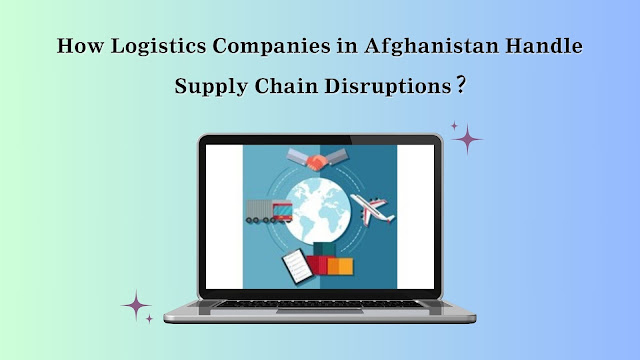How Sea Freight Companies Help Reduce Shipping Costs?
When managing international logistics, especially in a landlocked country like Afghanistan, cost efficiency becomes crucial. Importers, exporters, and logistics providers constantly seek ways to minimize expenses without compromising service quality. Sea freight remains one of the most economical shipping modes globally. But how exactly do Sea Freight Companies help reduce shipping costs? Let's explore the significant ways these companies offer value, particularly in Afghanistan's logistics landscape.
Understanding Sea Freight Cost
Efficiency
Sea freight is generally more
affordable than air transport, particularly for large-volume or heavy goods.
However, simply choosing ocean shipping isn’t enough — working with experienced
Sea
Freight Companies can make a considerable difference in your bottom
line. These companies not only manage cargo but also optimize routes,
consolidate shipments, and ensure compliance with customs, all of which
translate into cost savings.
Key Ways Sea Freight Companies
Reduce Shipping Costs
Here are the most effective ways
sea freight providers help customers reduce logistics expenses:
Shipment Consolidation
o Combining
multiple consignments into one container reduces per-unit costs.
o Helps
small or mid-sized businesses benefit from Full Container Load (FCL) pricing
through shared space.
Route Optimization
o Selecting
the most efficient and cost-effective shipping routes minimizes transit time
and associated handling fees.
o Avoids
congestion and high-tariff ports, especially when dealing with inland access
points in regions like Central Asia.
Volume-Based Discounts
o Established
Sea Freight Companies have relationships with major carriers, allowing them to
negotiate lower rates based on high shipping volumes.
o These
savings are often passed on to clients.
Efficient Documentation
Handling
o Mistakes
in documentation can lead to fines, delays, or re-shipments.
o Experienced
freight companies ensure accurate and timely paperwork, reducing unnecessary
expenses.
Customs and Compliance
Assistance
o Professional
guidance in meeting international trade regulations avoids penalties and
reduces clearance times.
o Particularly
important for regions like Afghanistan where customs procedures can vary by
entry point.
Flexible Container Options
o Offering
both FCL and Less than Container Load (LCL) allows businesses to select the
most economical option based on shipment size and frequency.
Use of Inland Dry Ports
o Sea
Freight Companies in Afghanistan often coordinate with inland dry ports in
cities like Kabul, Jalalabad, and Mazar-i-Sharif, lowering last-mile
transportation costs by integrating rail and road efficiently.
The Role of Sea Freight
Companies in Afghanistan
Due to Afghanistan’s landlocked
geography, imports and exports rely heavily on regional transit corridors —
typically via Pakistan’s Karachi port, Iran’s Chabahar port, or through Central
Asia. Sea
Freight Companies in Afghanistan play a pivotal role in:
·
Coordinating cross-border logistics from the sea
port to the Afghan destination.
·
Managing security-clearance protocols across
multiple jurisdictions.
·
Utilizing cost-effective trucking and rail links
from port cities to major Afghan provinces.
Their local knowledge and
international partnerships streamline logistics, reducing risk and cost for
both businesses and humanitarian efforts.
Conclusion
Cost-effective shipping isn’t
just about choosing the cheapest mode of transport — it’s about smart planning,
execution, and working with the right logistics partners. Sea Freight Companies
bring expertise, network leverage, and process optimization that directly
impact your shipping expenses. In a strategically complex environment like
Afghanistan, their role becomes even more critical. Whether you’re moving
consumer goods, machinery, or relief supplies, partnering with a reliable sea
freight company can lead to long-term savings and operational efficiency.




Comments
Post a Comment